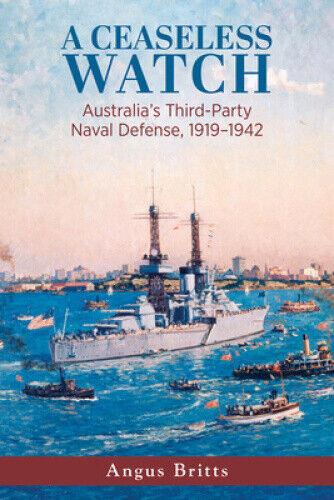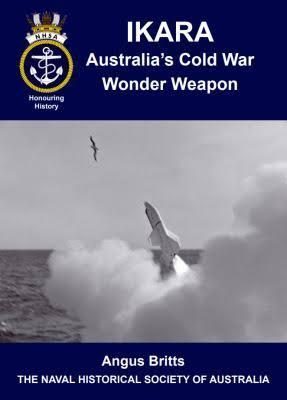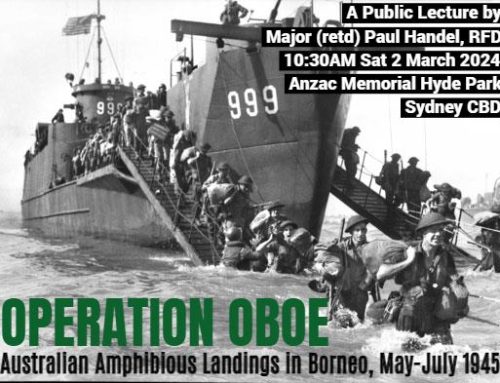Beyond the ‘Kantai Kessen’
Japan’s Fateful Defeat in the Southwest Pacific
A Public Lecture by Angus Britts
 In the ‘Kantai Kessen’ (decisive naval battle doctrine) the Japanese navy would win a war by fighting and winning a single, decisive naval action.
In the ‘Kantai Kessen’ (decisive naval battle doctrine) the Japanese navy would win a war by fighting and winning a single, decisive naval action.
At the beginning of May 1942 Japan prepared to commence a fresh wave of offensive actions in the Southwest Pacific with the ultimate aims of strategically isolating Australia and America while seeking to finally neutralise the US Pacific Fleet through the destruction of its aircraft-carrier arm. Within a year the ambitions of the Japanese Naval Staff lay in ruins, and the ultimate fate of Japan itself was effectively sealed.
This presentation seeks to illustrate the core weakness of the Japanese military machine, namely its wholesale commitment to offensive warfare, which was exposed and deflated by the Allies in the course of the New Guinea and Solomons campaigns following the disastrous reversal of fortunes for the Imperial Japanese Navy at Midway in early June 1942. Over-ambitious strategic planning, fractious inter-service relations between the Japanese Army and Navy, the lack of proper logistics and supply infrastructure, and weaknesses in the buildup of air and naval forces are identified as the core reasons why any contemplated operations against Australia other than bombing and submarine warfare were eventually untenable, and made the defence of Japan’s Pacific island shield similarly impossible. It is the narrative of a nation that like Germany made the fatal mistake of assuming that cheap victories alone were sufficient to ensure ultimate triumph over the western powers and the Soviet Union without recourse to the planning and preparation required for the emergence of a total war environment.
About the Presenter
Angus Britts is an Australian historian who resides in Sydney. He graduated with a postgraduate Research Masters from the University of Sydney and his major area of historical interest is British imperial naval defense and the Singapore strategy. Angus’s books on this theme include Neglected Skies: The Demise of British Naval Power in the Far East 1922–42 (2017) which covers a wide period of history that takes the British Navy from the heights of its might to the point of near
decay at a critical time, A Ceaseless Watch: Australia’s Third Party Naval Defense 1919–1942 (2021) which illustrates how Australia confronted the need to base its post–World War I defense planning around the security provided by a major naval power, and Ikara: Australia’s Cold War Wonder Weapon (2021), for the Naval Historical Society of Australia, which sets the scene for the development of the Ikara missile via a description of anti-submarine warfare during the Second World War and the evolving Cold War situation with Russian submarine developments.








